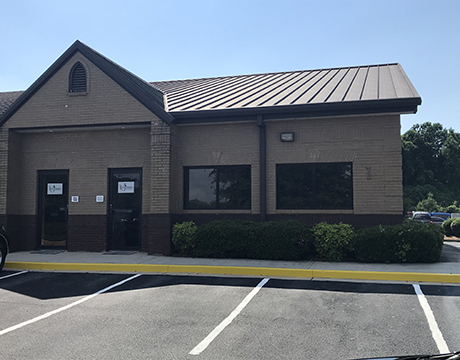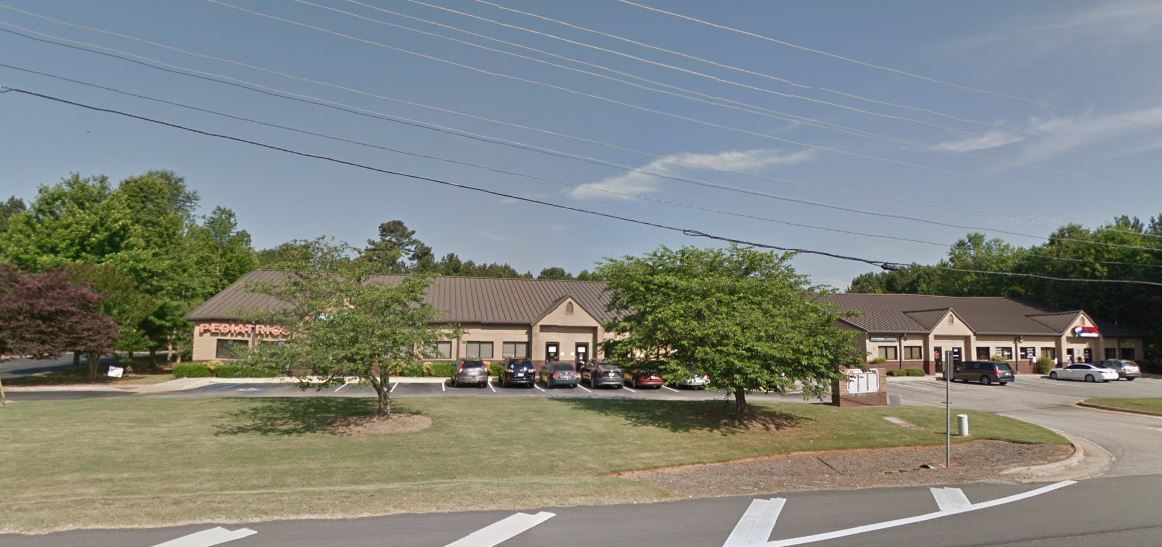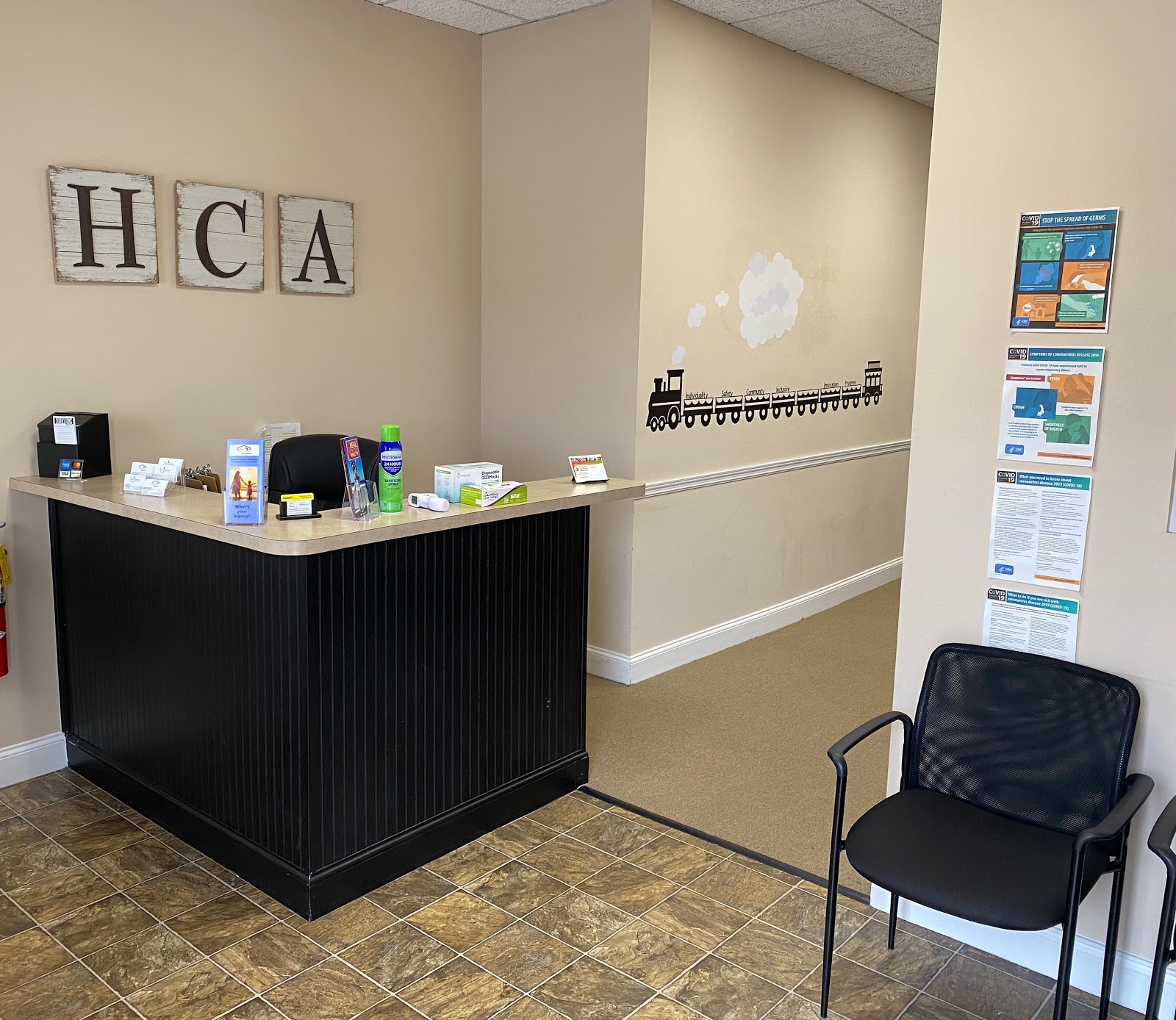Health Connect America
Overview
Health Connect America is a mental health treatment center for people seeking treatment near Hall County. As part of their treatment modalities for recovery, Health Connect America provides couples/family therapy, group counseling, and cognitive behavioral therapy during treatment. Health Connect America is located in Gainesville, Georgia, accepting cash or self-payment for treatment.
Health Connect America at a Glance
Payment Options
- Cash or self-payment
- Medicaid
- Private health insurance
- State mental health agency (or equivalent) funds
- State welfare or child and family services funds
Assessments
- Comprehensive mental health assessment
- Comprehensive substance use assessment
Age Groups
- Seniors or older adults
- Young adults
- Children/adolescents
- Adults
- Seniors
Ancillary Services
- Case management service
- Court-ordered outpatient treatment
- Family psychoeducation
- Suicide prevention services
- Therapeutic foster care
Treatment At Health Connect America

Conditions Treated
Alcoholism:
Alcohol addiction is a condition where someone feels a strong and uncontrollable urge to drink alcohol, often leading to negative effects on their health, relationships, and daily life. To assist individuals grappling with alcohol addiction, various strategies exist. Initially, supervised detoxification may be necessary to ensure a safe cessation of alcohol consumption. Following this, counseling and therapy play a crucial role in addressing the psychological facets of the addiction. Engaging in support groups can also offer a sense of camaraderie and comprehension.
Mental health treatment:
Mental health facilities offer a safe space for individuals to get specialized care. Trained experts create personal plans using therapies, possibly including medication. The goal is to help individuals cope better and lead fulfilling lives, with constant support and a community feel.
Substance use treatment:
Substance use rehabilitation is a structured program aimed at assisting individuals in overcoming their dependencies on drugs or alcohol. Through a combination of medical detoxification, counseling, and various therapeutic approaches, these programs strive to address the physical and psychological aspects of addiction. The goal is to equip individuals with the knowledge, skills, and support necessary to attain lasting sobriety, while also working to identify and address the underlying issues contributing to substance misuse. By fostering a supportive environment, substance use rehabilitation centers provide a pathway towards a healthier, substance-free life.
Co-occurring Disorders:
Dual-diagnosis rehabs are usually the appropriate solution to treat co-occurring mental health and substance abuse disorders. These facilities typically employ medical and behavioral experts who use a range of interventions, together with the right healing environment, for you to achieve and sustain long-term recovery. Treatment usually includes evidence-based therapies (like cognitive behavioral therapy), recovery support meetings, 12-step facilitation, psychoeducation, skills training, and group therapy.

Levels Of Care
Outpatient:
Outpatient treatment in a rehab center offers flexible therapy sessions, typically ranging from 1-3 hours per week, allowing individuals to continue daily activities while receiving care. In contrast, intensive outpatient programs demand a more rigorous commitment, often involving 9-15 hours weekly, providing a more immersive therapeutic environment without the need for inpatient stays.

Treatment Modalities
Couples/family therapy:
Couples Therapy during rehab is a specialized counseling program designed to support couples who are navigating the challenges of addiction recovery together. This form of therapy provides a safe and structured environment where couples can address the impact of substance abuse on their relationship and work towards healing and growth as a team. By addressing both individual and shared issues, couples in rehab can strengthen their bond and increase their chances of sustained recovery, fostering a healthier and happier future together.
Group counseling:
Group counseling provides a supportive environment where individuals share personal experiences and insights, under the guidance of a professional counselor. It facilitates self-awareness, fosters interpersonal learning, and helps members work through personal and relational challenges. Through shared dialogue and reflection, individuals learn coping strategies, gain emotional support, and experience personal growth within a communal setting.
Cognitive behavioral therapy:
Cognitive Behavioral Therapy (CBT) is a evidence-based psychotherapeutic approach that aims to address dysfunctional emotions, behaviors, and cognitions through a goal-oriented, systematic process. It involves identifying and challenging negative thought patterns and beliefs and replacing them with more constructive ways of thinking and behaving. CBT is commonly used to treat a variety of mental health disorders, including depression, anxiety, and phobias.
Dialectical behavior therapy:
Dialectical Behavior Therapy (DBT) is a cognitive-behavioral therapeutic approach primarily to treat individuals with borderline personality disorder. It combines standard cognitive-behavioral techniques with distress tolerance, acceptance, and mindfulness concepts. DBT emphasizes the balance between accepting and changing behaviors, aiming to help patients build life skills, regulate emotions, and improve interpersonal relationships. It has since been adapted for and shown effectiveness in treating a variety of other mental health conditions.
Integrated Mental and Substance Use Disorder treatment:
Integrated Mental and Substance Use Disorder treatment is a comprehensive approach to treating individuals with both mental health and substance use disorders. It aims to address both conditions simultaneously through a coordinated and integrated approach. The goal is to improve overall well-being and reduce the risk of relapse.
Activity therapy:
Activity Therapy refers to a therapeutic approach utilized in rehab centers to promote physical, emotional, cognitive, and social healing. Through structured and guided activities, patients are encouraged to engage in tasks that stimulate the mind, enhance motor skills, foster interpersonal relationships, and bolster self-esteem. By participating in diverse activities, from arts and crafts to group games, patients not only distract from negative thoughts or behaviors but also develop coping mechanisms, resilience, and a sense of purpose. It's a holistic way of enhancing an individual's overall well-being while in the recovery process.
Telemedicine/telehealth therapy:
Telehealth Therapy is a level of care that offers psychological counseling and therapeutic services to individuals via digital platforms, such as video conferencing, phone calls, or messaging apps. This approach allows clients to connect with qualified therapists remotely, providing increased accessibility, flexibility, and convenience, especially for those who may have mobility issues, live in remote areas, or prefer the comfort of their own environment. By leveraging technology, Telehealth Therapy bridges the gap between patients and mental health professionals, ensuring continuity of care irrespective of physical distances.
Ancillary Services
Languages
- Spanish
Special Programs
- Clients with co-occurring mental and substance use disorders
- Veterans
- Members of military families
- Clients who have experienced trauma
- Persons with post-traumatic stress disorder (PTSD)
Contact Information
DISCLAIMER: The facility name, logo and brand are the property and registered trademarks of Health Connect America, and are being used for identification and informational purposes only. Use of these names, logos and brands shall not imply endorsement. BetterAddictionCare.com is not affiliated with or sponsored by Health Connect America.



